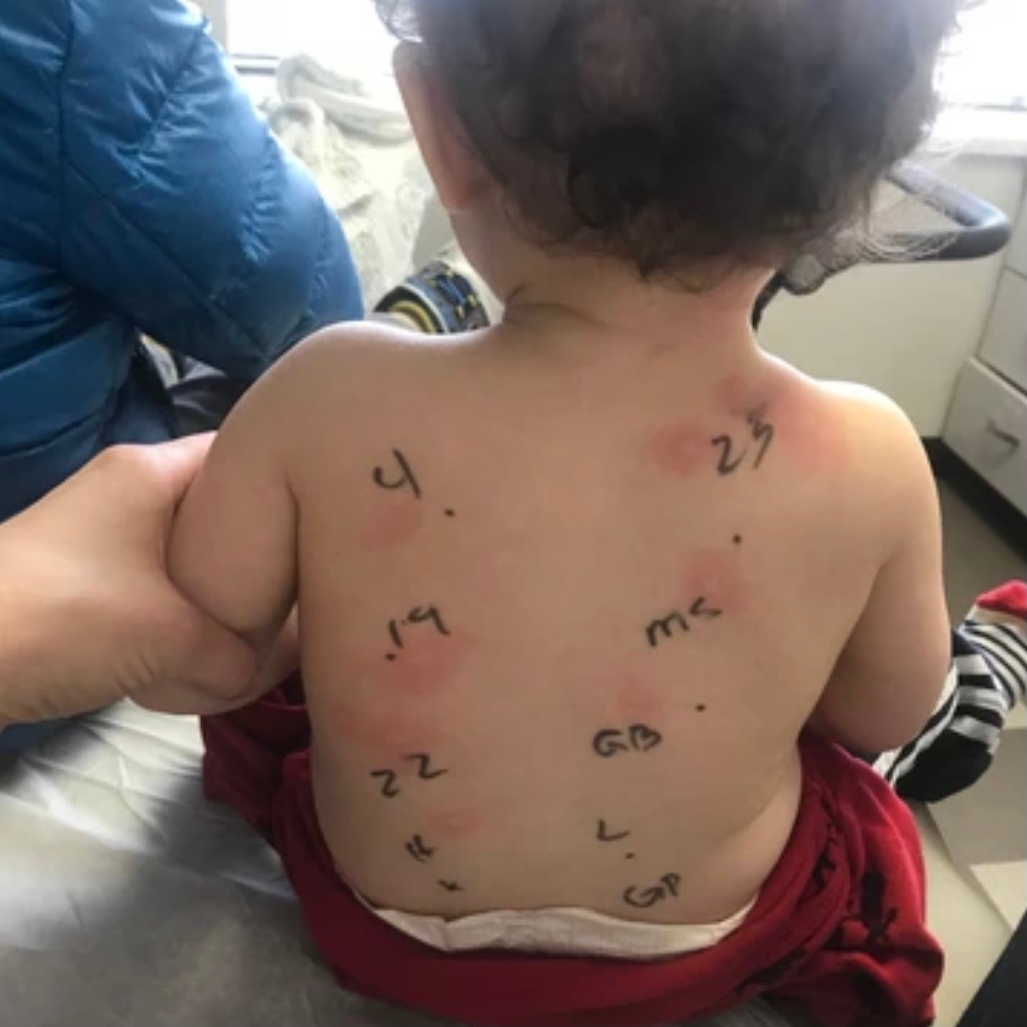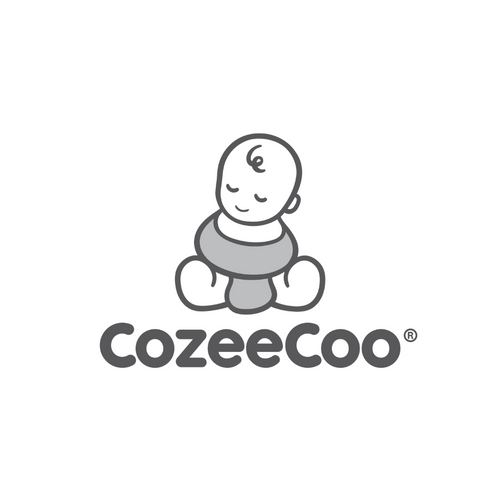By Jennifer Stelmakh,
CEO Founder & Inventor at CozeeCoo™
Based on my Success Story
Please note: I am NOT a doctor. The Content is not intended to be a substitute for professional medical advice, diagnosis, or treatment. Always seek the advice of your pediatrician or other qualified health provider with any questions you may have regarding a medical condition.
This blog is the Who, What, When, Where, Why and How of baby allergy skin-prick tests and baby allergy blood tests.
Who:
Babies (age 1 year and under)
You may be happy to know that my Anthony (at 2 months old) didn't even notice the allergy skin-prick test was being done.
What:
Baby allergy skin-prick tests and baby allergy blood tests
Literally anything can be tested so a list of suspected allergies is recommended. If you do not know where to start, you can begin with the top most common allergies.
When to Test:
Many allergists will not skin-prick test babies under 6 months of age. This is because most babies under 6 months are not directly ingesting food themselves and breastmilk cannot technically be labeled an allergy. Babies can, however, react negatively to certain foods through breastmilk (resulting in an allergic reaction and/or eczema flare). With the referral of your pediatrician, testing can still be done at an earlier age -especially if your case is severe. Challenges are not typically done until the baby is closer to age one. A "challenge" is a controlled and monitored (in clinic with a medical team) ingestion of a suspected allergy to determine the severity of the allergy. This is done to then decide what actions need to take place in case of an accidental ingestion. If baby is younger, an EpiPen can be prescribed as a precaution.
Where:
Testing is done in a doctor's clinic, typically by an allergist and their nurse team. The skin-prick test is when very tiny amounts of the allergens are gently pricked into the baby's skin to visually observe their skin's reaction. A large area of skin is needed to conduct the test. This is usually done on their back, chest or thigh. The blood test is done by collecting some of baby's blood and then testing for antibodies from the suspected allergens.
Why Test?
These tests are very helpful because if your baby has had reactions shortly after a suspected irritant and then they test positive for it, it is very likely your baby has an allergy to that ingredient. Then you can test the severity of that allergy through a challenge. Your baby may need to carry an EpiPen (Epinephrine Auto-Injector), simply an over the counter allergy relief medicine or nothing at all. Please note that Epipens just assist with breathing momentarily so you have enough time to get to the hospital. It should be noted that about 50-60 percent of results are "false-positive", which is why allergists interpret results alongside suspected triggers and baby's medical history.
How:
Choosing Between a Skin-Prick Test and/or a Blood Test:
Both allergy skin-prick tests and allergy blood tests look for antibodies that allergies produce.
The skin-prick test gives results after 15 minutes while the blood test can take days to receive results. To take the skin-prick test a child must not use antihistamines (allergy medications) 3-14 days before testing and cannot have extensive rashes that would prevent skin testing. The blood test is not affected by antihistamines or extensive rashes and is better for avoiding possible anaphylactic shock. For more information you can visit American College of Allergy, Asthma and Immunology's website.
My Family's Experience:

Anthony (at 2 months old) took an allergy skin-prick test with our Allergist.
Allergy Test Results: Allergic to peanuts, almonds and eggs. Not "allergic" to wheat (gluten), oats, coconut, soy.
This doesn’t mean that the non allergens cannot still trigger the eczema.
Eczema triggers are cane sugar, stress and formula with a milk and soy base.
Suspected eczema triggers were: oats, cocoa (caffeine), gluten, dairy and soy.
Since Anthony solely breastfed, he had never ingested these ingredients himself so the degree of his reaction was unknown. For this reason we were prescribed Epinephrine Auto-Injectors (EPipens) to keep with us at all times. If needed, this could hopefully buy us time to get to an emergency room.
The Game Plan from here: I was to keep nuts (including coconut) and eggs out of my diet but eat them sparingly to ideally create a tolerance for Anthony. I was to observe the results through the process and if Anthony reacted very poorly to an ingredient, I was to stay clear of that food.
My diet restrictions:
No: alcohol, smoking, nuts (including coconut), eggs, caffeine, dairy, sugar (except fruits and vegetables), soy, oats, gluten or tomatoes

At a later Allergist Appointment we found out Anthony (at 15 months old) was also allergic to all seeds. Tomatoes and coconut were fine to eat. I stopped sparingly eating trigger foods and simply avoided them.
My diet restrictions:
No: alcohol, smoking, caffeine, dairy, sugar (except fruits and vegetables) nuts (not including coconut) soy, oats, gluten, eggs or seeds
All of Anthony’s allergies had been tested through the allergy skin-prick test. He only ingested the ingredients through my breastmilk and never directly himself. Because of this we can schedule "Challenges" with his Allergist to test the severity of each allergy (nuts, peanuts (legume), seeds and eggs). We have yet to do this. In order to conduct a challenge the severity levels have to be under 50%. We now test Anthony annually with a blood and skin prick test to compare results. For example, his blood test comes back negative for peanuts while his skin prick test comes back positive. We have an egg challenge scheduled. Our allergist is optimistic that Anthony can eventually schedule a peanut, sunflower seed, sesame seed and almond challenge as well.
Eventually the foods I avoided and the diet I ate became Anthony's pureed diet and then solid diet.
I'm not a doctor, just a mom who was able to find some of our family's answers with help from our doctors. If you have questions, helpful comments or just want to say hi, please leave me a message below.
Curious about my full story? Please check it out.
Jennifer Stelmakh
CEO | Founder | Inventor at CozeeCoo®
Helping babies thrive.

